Reviews
Andrzej Żuławski
France, 1981
Credits
Review by Michael Nordine
Posted on 04 October 2013
Source Second Sight BRD
Categories 31 Days of Horror X
For much of its runtime, Possession only reads as a horror movie tonally. Its unrelenting oddness and atmosphere of malevolence all but disqualify it from inclusion in any other genre (see also: The Tenant, The Wicker Man), and both aspects are promptly established in the opening minutes. The title alone puts unpleasant thoughts into the mind - who’s being possessed, and by what? - and pinpointing the source of the evil to which it refers will prove, by design, to be a murky affair. The slow-burning unease this unknowing engenders is an effective approach for any horror film, and while Andrzej Żuławski’s first and only English-language outing is only intermittently frightening in a traditional sense it is aggressively unsettling for its entirety.
Were it not for what’s sometimes referred to simply as “the creature,” in fact, the film might not be regarded as horror at all. Most of the disturbing content comes via Żuławski’s portrait of a marriage at its violent end, which is said to have been influenced by his own divorce from the actress Malgorzata Braunek while writing the script. Within the first ten minutes a couple, named Mark and Anna, sustains the unravelling of their relationship in spectacular fashion, and immediately thereafter Mark is reduced to a bumbling, feverish mess as the reality of his present situation sets in. Many of the scenes that follow consist of hysterical fights between the two distressed lovers; all of their confrontations are loud, and several are violent—even self-inflicted in one case. (This war-of-the-sexes vibe is very much a precursor to Antichrist, whose heroine is more than a little reminiscent of Anna.) Even when their shouting matches verge on melodrama, our disbelief is suspended by Żuławski’s insistence on maintaining a mesmerizingly off-putting mood and Isabelle Adjani’s haunting performance as Anna. Adjani treats her character’s condition as something that’s taken her over on a cellular level and cannot be undone; the viewer is inclined to agree. Every mundane exchange in which she’s involved is made tense by the growing realization that, sooner or later, the other shoe must drop.
After some 45 minutes, it finally does—albeit briefly. There’s an abrupt murder, a brief sighting of the aforementioned creature designed by Carlos Rambaldi, and then things quickly return to what in Possession passes for normality. Żuławski is said to have pitched his film to Charles Bluhdorn of Paramount as “a film about a woman who fucks an octopus1,” a description that, while humorous and not entirely inaccurate, overlooks the even more distressing fact that she also appears to birth said monster. The scene in which this occurs, defined as it is by unrecognizable bodily fluids and shrieks of terror, is far and away Possession’s most memorable—which, in this movie, is more or less a synonym for disturbing.
Threaded throughout the first hour is a series of events that, while not as outwardly (and graphically) strange as the above, become off-putting through their gradual accumulation: an orange telephone in a room otherwise dominated by blue; a drunkard reaching into Anna’s grocery bag to procure a banana (her non-response is equally odd); Mark playing soccer with a group of children immediately after a vicious fight with Anna has spilled onto the street. There’s also this note on the back of a picture postcard from the Taj Mahal:
I’ve seen half of God’s face here. You are the other half…
Each of these registers on a largely subconscious level, resting somewhere in the back of the mind until there are so many crowding your headspace that there’s little room for anything else. None of it is commented upon or mentioned again after it’s passed, but each leaves a trace that, in sum, proves as vital to the film’s constant tension and unease as the creature.
Shot in West Berlin when West Berlin was still a place, Possession is informed by its Cold War backdrop and the division of the city in which it takes place. Mark and Anna are a couple divided, and their caught-in-the-middle son suffers for it as much as they do. Each half of this toxic relationship has a doppelgänger - one utterly grotesque until it reaches its final form, the other disarmingly elegant and identical to its original save for the color of her eyes - and in both exaggerated beings we’re offered glimpses of why the marriage failed. The forms Mark and Anna’s sadness, anger, and fear take on are horrific largely as a means of showing how destructive these feelings are to those who carry them around on the inside. In hindsight, what’s most disquieting about Possession may be the knowledge that they never needed the creature to show up at all.
- Bluhdorn declined. ↩
More 31 Days of Horror X
-
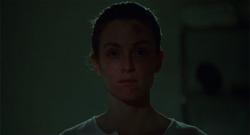
Safe
1995 -
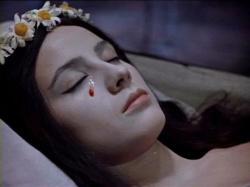
Viy
1967 -
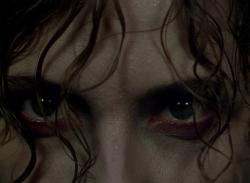
Black Narcissus
1947 -

Possession
1981 -

Carrie
1976 -

The Devils
1971 -
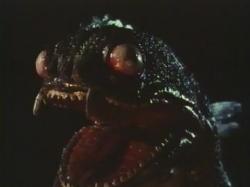
The Sea Serpent
1984 -

The Dark Half
1993 -

The Baby
1972 -
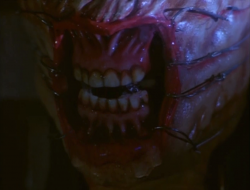
Hellraiser
1987 -

The White Reindeer
1952 -
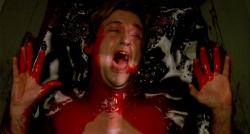
The Serpent and the Rainbow
1988 -
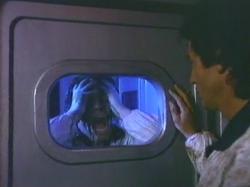
Endless Descent
1989 -

Prom Night
1980 -
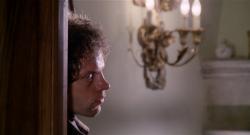
Night Train Murders
1975 -
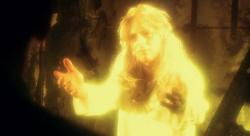
God Told Me To
1976 -
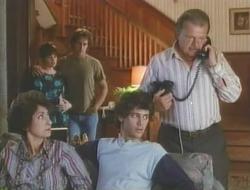
In a Child’s Name
1991 -
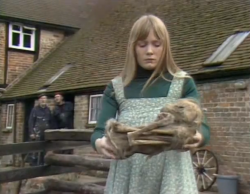
Beasts
1976 -

Prom Night II
1987 -
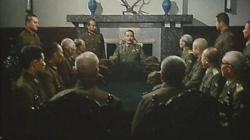
Men Behind the Sun
1986 -
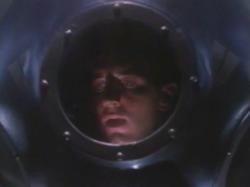
DeepStar Six
1989 -

At Midnight I’ll Take Your Soul
1964 -

They Came Back
2004 -
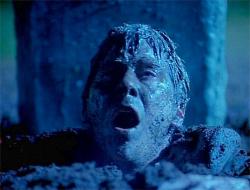
Buried Alive
1990 -
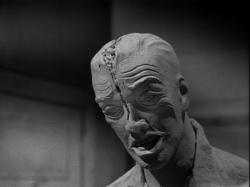
A Bucket of Blood
1959 -
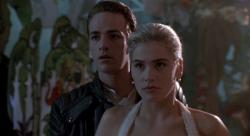
Buffy the Vampire Slayer
1992 -

Night and Fog
1956 -

It Came From Beneath the Sea
1955 -
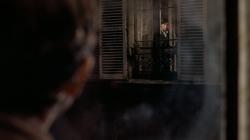
The Tenant
1976 -

Tokyo Gore Police
2008 -

The Rocky Horror Picture Show
1975
We don’t do comments anymore, but you may contact us here or find us on Twitter or Facebook.



